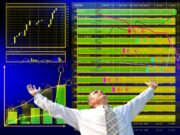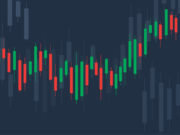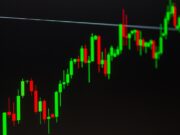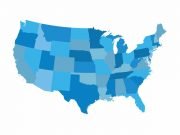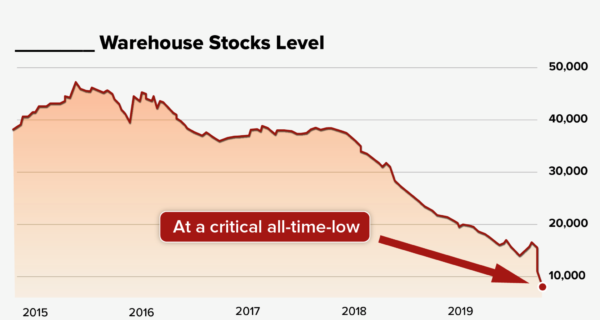Markets have fallen in the last month after the Federal Reserve announced that it would keep raising interest rates by half a percentage point monthly to combat persistent inflation. On Wednesday, the Dow Jones dropped a massive 1,164 points, or 3.6%, to its lowest level since 2020. The S&P 500 index fell 4%, approaching bear market territory, while the Nasdaq was down 4.73%.
Investors are now demanding more, despite Fed Chairman Jerome Powell’s previous assurances that a rate hike that would be higher than already proposed isn’t on the table.
According to Bank of America (BAC) analysts, “Investors see the Fed as moving too slowly on the inflation fight: a 75 basis point hike might have been feared, but it now appears it would have been preferred.” Economists now expect the Fed to raise the fed funds rate by three-quarters of a point in June and July, following its half-point increase in May.
Which stocks, along with the major indices, have been impacted, and how concerned should investors be moving forward? Get the rest of the story here:
Retailers ended up taking the brunt of the losses. Dollar Tree (DLTR) was down 14%, while Dollar General (DG) was down 11%. Best Buy (BBY) was down 11%, and Amazon (AMZN) was down 7.2%. Tech stocks were also affected. Blue-chip IT companies such as Microsoft (MSFT), Alphabet (GOOGL), Meta Platforms (FB), and Tesla (TSLA) all fell between 3.9% and 7% after leading a solid rally during the previous session.
Rising inflation, the Russia-Ukraine crisis, lengthy supply chain issues, pandemic-related lockdowns in China, and the likelihood of aggressive policy tightening by central banks have all harmed markets recently, inciting fears of a worldwide economic downturn. The Wells Fargo Investment Institute revised its economic projections on Wednesday, making a moderate U.S. recession the base case — a calculated assumption or likely occurrence — for the end of 2022 and early 2023.
Unfortunately, inflation and the Fed’s attempt to slow price rises by raising interest rates have put pressure on stocks and other risk assets, raising concerns about a possible recession. In an interview on Wednesday, Jeremy Grantham, an investment analyst and asset management expert, suggested that the current collapse is worse than the tech bubble of 2000. Stocks could more than double their losses, according to Grantham, who is well-regarded for his talent at spotting market bubbles.
Major retailers’ losses (as I mentioned before) mainly were blamed on higher expenses, poor sales, and supply-chain interruptions. For example, Target (TGT)’s stock dropped 25% after the business reported poor quarterly profits and experienced its worst one-day performance since 1987’s Black Monday. The numbers have prompted Wall Street to reconsider its position on the possibility of a worldwide recession. Though the discussion is far from over, it has roiled equities and other risky assets throughout the year. The most recent data demonstrates how hard inflation has affected Americans.
Both Russia’s conflict with Ukraine, which might interrupt supply, and Chinese city lockdowns, which drain demand, have substantially impacted oil prices in recent months. However, one piece of potentially positive news is that Shanghai’s authorities have begun reopening the city.
The United States’ decades-high inflation, how much policymakers are prepared to bring it down, and what changes in monetary policy entail for economic growth are all on investors’ minds. Even if the efforts necessary happen to raise unemployment, Fed Chairman Jerome Powell said Tuesday that the central bank’s commitment to fighting inflation should not be in doubt.
J.P. Morgan Asset Management’s global market strategist David Lebovitz put it very well, saying, “People start to lose faith in the idea that the Fed really does have its arms around inflation. It’s all about getting a grip on what the Fed is going to do, and unfortunately, given the lack of clear guidance from them, and an inflation report that surprised to the upside, investors are a little bit uncomfortable.” There are too many things on investors’ minds right now, and the best thing we can probably do is make intelligent financial decisions, and hope for a much-welcome reprieve.

